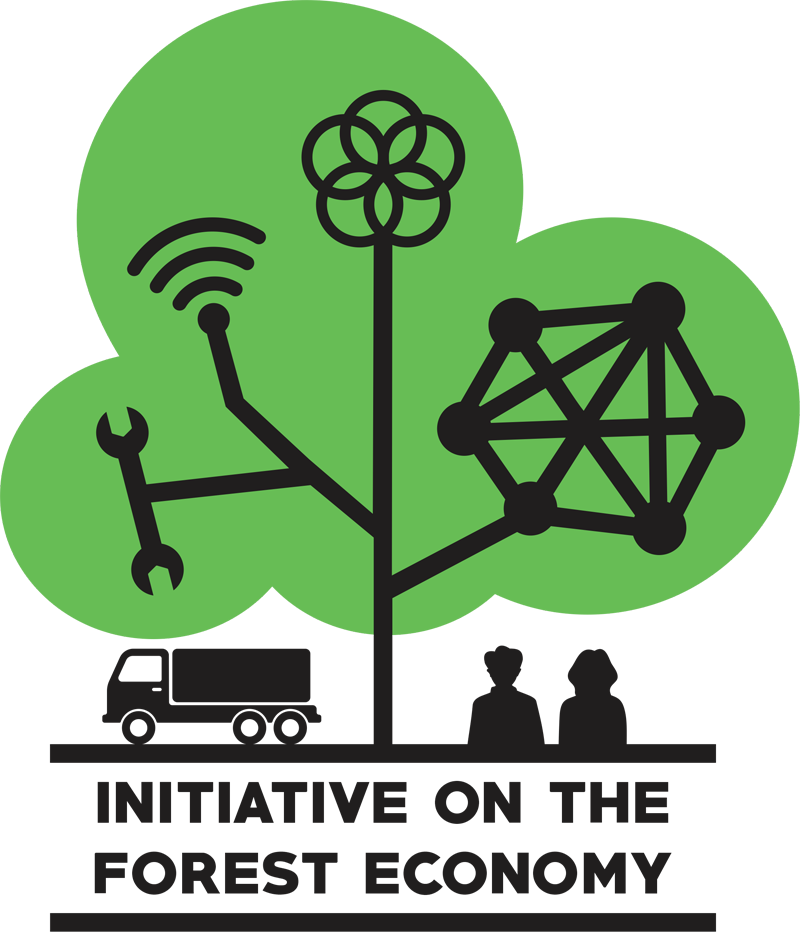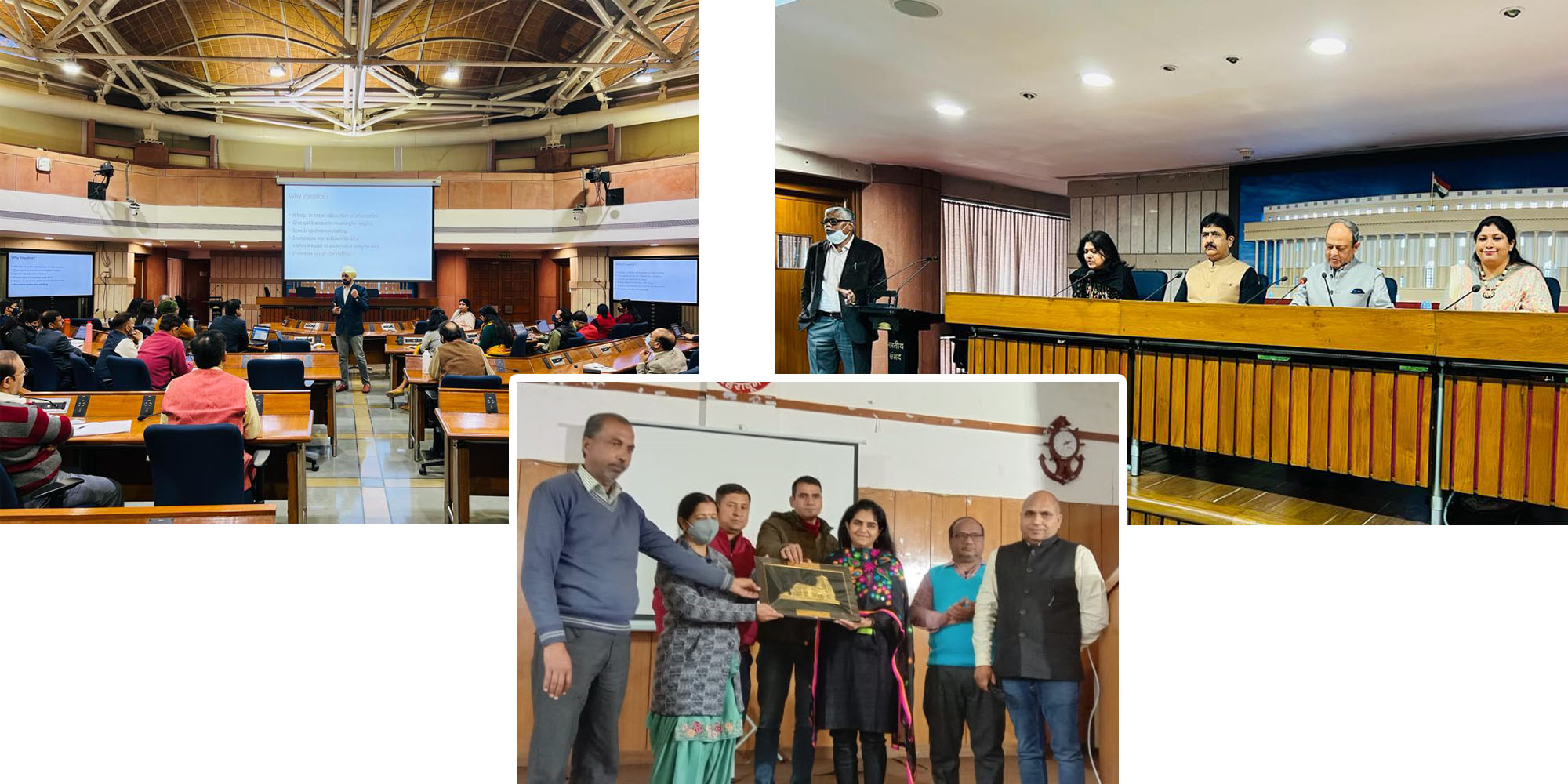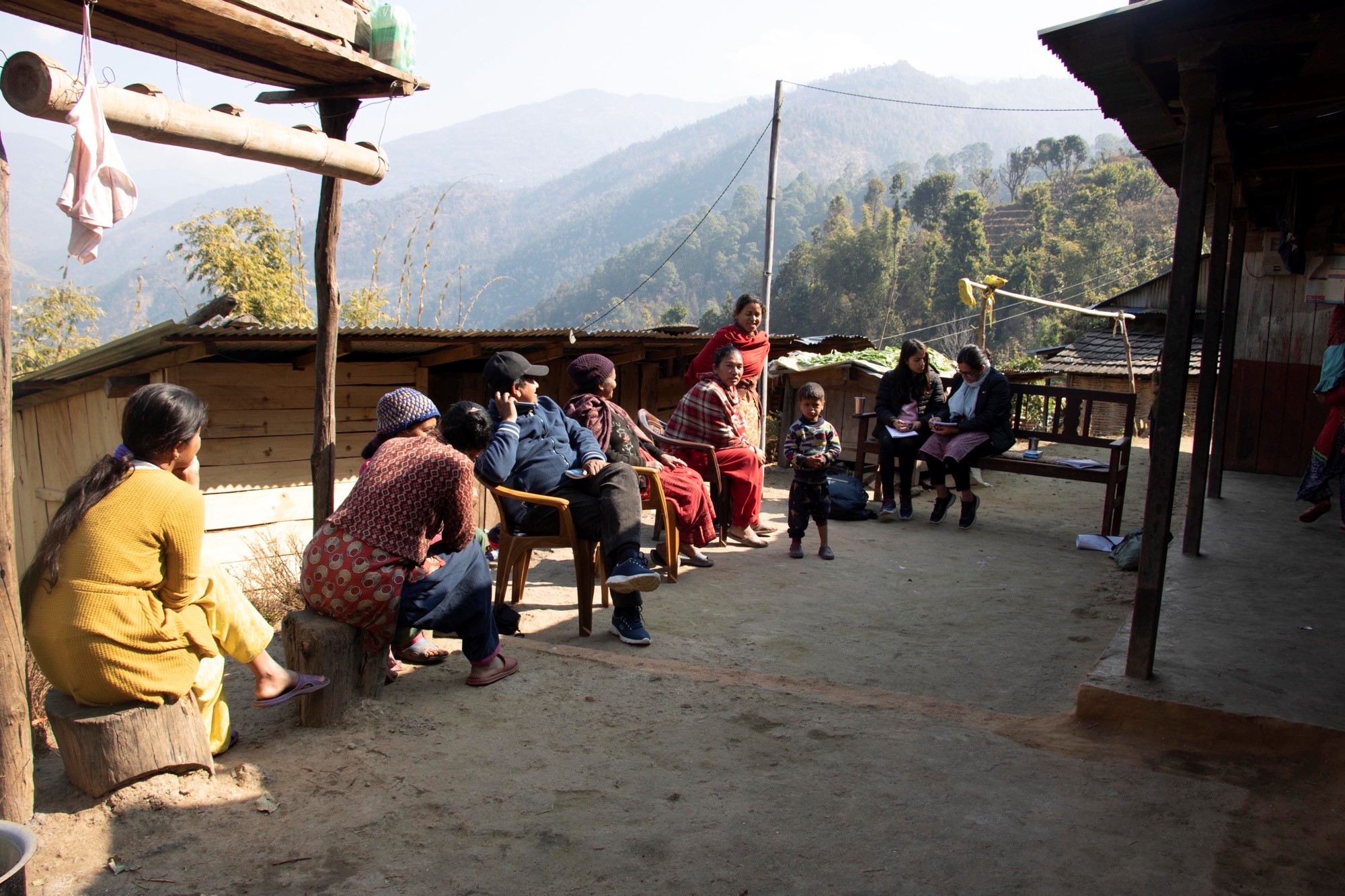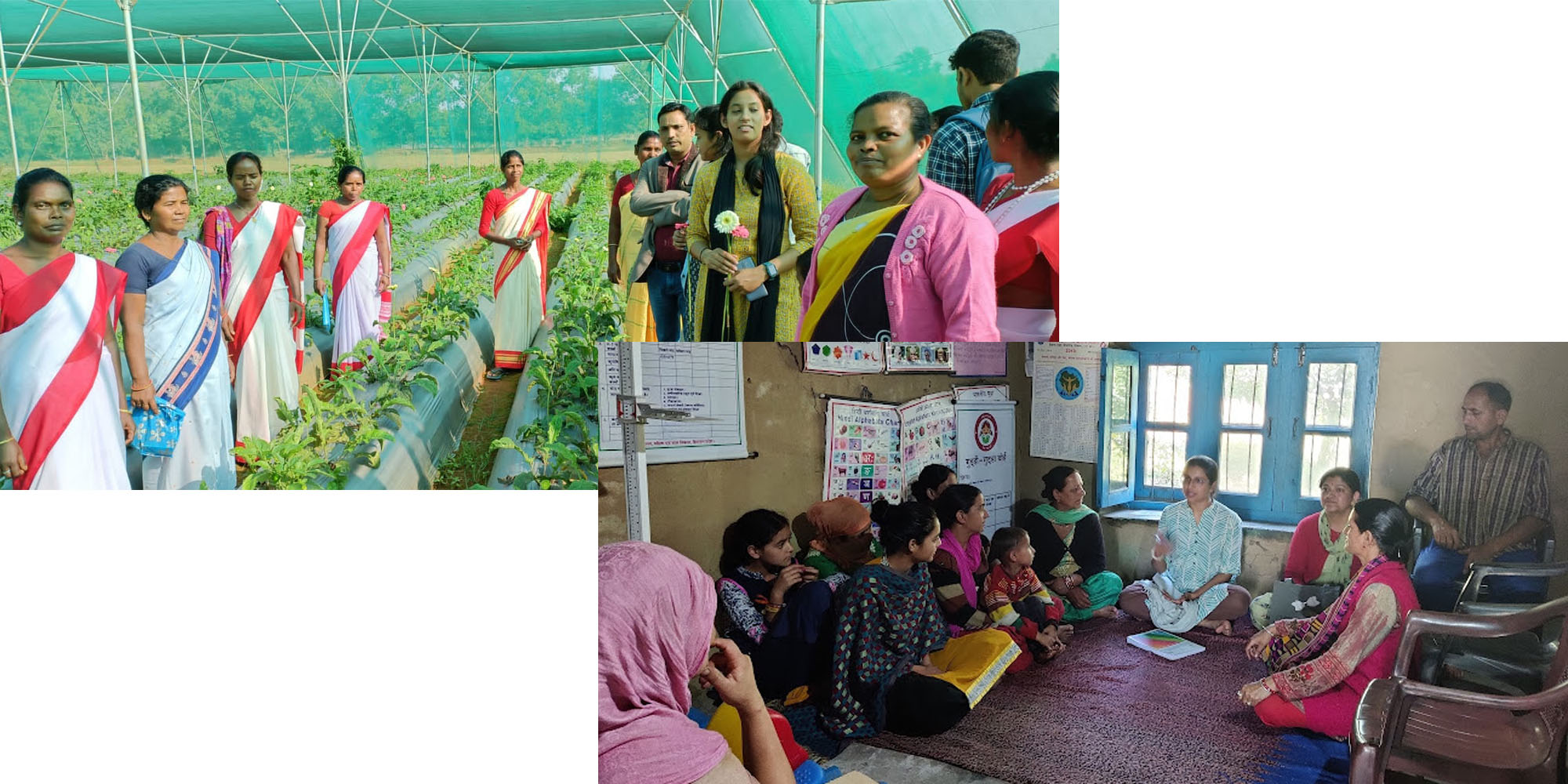
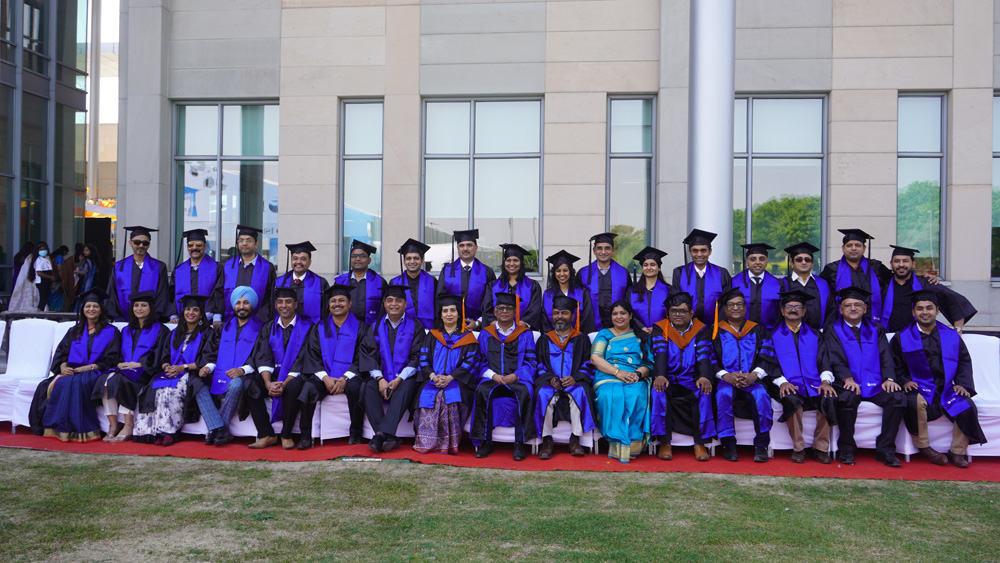
Bharti Institute of Public Policy is delighted to share with you the latest developments in its education, training and research programmes, and the new collaborative undertakings by the Institute during the first quarter of the year 2022. All this, amid some special high-profile engagements and promising initiatives to set the tone for the year!

Highlights of the Quarter
Bharti Institute - Fletcher School renew partnership on Public Policy
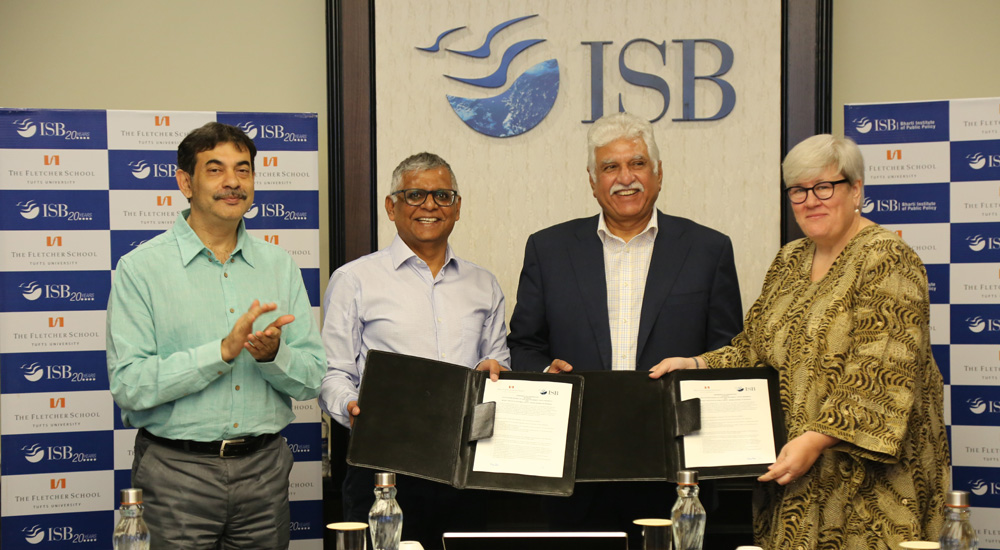
Prof Madan Pillutla, Dean, Indian School of Business, and Ms Rachel Kyte, Dean, The Fletcher School, exchange the agreement of cooperation in the presence of Mr Rakesh Bharti Mittal, Chairperson, Advisory Council, Bharti Institute of Public Policy, and Mr Jayesh Ranjan, Principal Secretary, Departments of Industries and Commerce, and Information Technology, Government of Telangana, at ISB Campus, Hyderabad.
Bharti Institute of Public Policy has renewed its partnership with The Fletcher School of Law and Diplomacy at Tufts University, situated in Medford, Massachusetts, USA. Professor Madan Pillutla, Dean, Indian School of Business, and Rachel Kyte, Dean, The Fletcher School, exchanged the agreement of cooperation on April 12 at ISB campus, Hyderabad, in the presence of Mr Rakesh Bharti Mittal, Chairperson, Advisory Council, Bharti Institute of Public Policy, and Mr Jayesh Ranjan, Principal Secretary of the Industries & Commerce (I&C) and Information Technology (IT) Departments, Government of Telangana. Through the five-year renewed agreement, the institutions will continue to build upon their collaboration on public policy, till year 2027.
The cooperation is aimed at promoting interest in the teaching and research activities of the respective institutions; to deepen understanding at each institution of the economic, cultural and social issues relating to its counterpart; and to impact and impart knowledge and training on public policy to the private sector, non-profit sector, government, and civil society. The potential activities to meet these goals include the exchange of faculty and students; organisation of joint conferences and public events; creation and delivery of training programmes, and the pursuit of joint research by faculty and students at both institutions.
“The Fletcher School’s partnership with the Bharti Institute of Public Policy at the Indian School of Business is among Fletcher’s oldest and most important connections to India. I look forward to Bharti and Fletcher expanding its cooperative programming at a time when India is vital to creating solutions that address many of the world’s most pressing problems,” said Dean Rachel Kyte. Read more about the renewed collaboration here.
Dr Suman Bery is new Vice Chairman, NITI Aayog
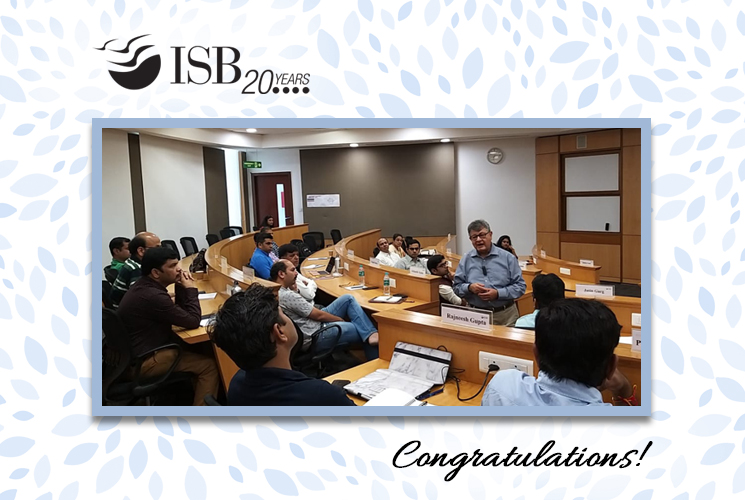
Bharti Institute of Public Policy congratulates Dr Suman Bery on being appointed as the Vice Chairman, NITI Aayog, New Delhi. Dr Bery’s valuable insights as Member, Advisory Council, Bharti Institute, have always been a guiding light for the Institute’s journey. His worthy leadership, at the helm of national policy planning, will immensely benefit the nation, and as a public policy institute, this is a matter of great pride for us. Team Bharti Institute wishes him success for the new assignment!
EDUCATION
Advanced Management Programme in Public Policy
The third residency of the Cohort 22 of the Advanced Management Programme in Public Policy was conducted from 3rd March to 13th March, at Chandigarh. Seven courses covering various aspects of public policy, including Design and Implementation of India’s Foreign Policy; Big Data for Public Policy; Indian Economic Transformation; Theory and Practice of Negotiation; Technology and Society, Communication Skills and Writing Case Studies, were covered in this term. The residency concluded with a gala dinner evening which saw participants transcending beyond the usual routine of lectures and classroom discussions, and indulging in cultural activities and light conversations, at the residency venue.
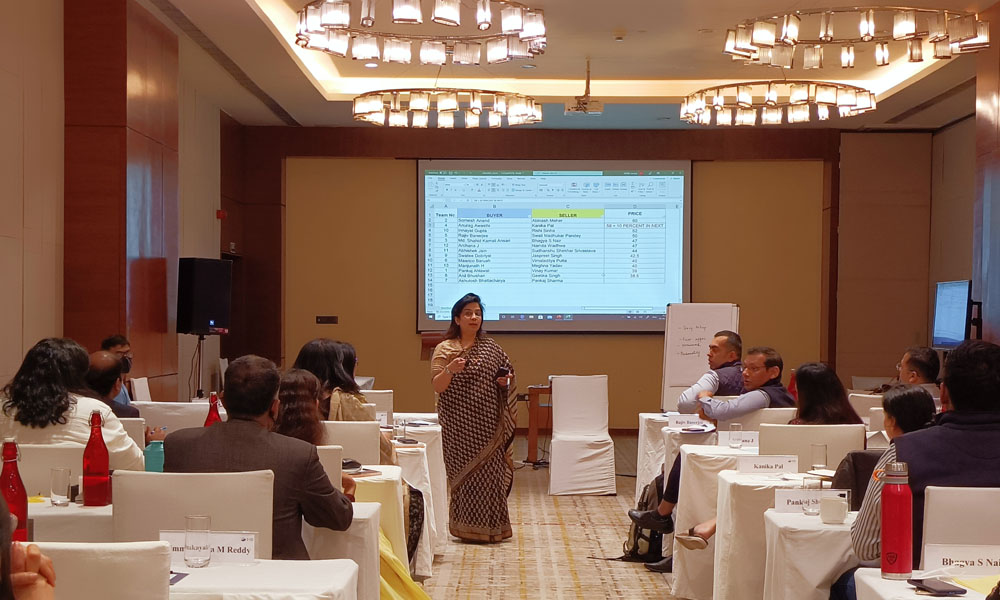

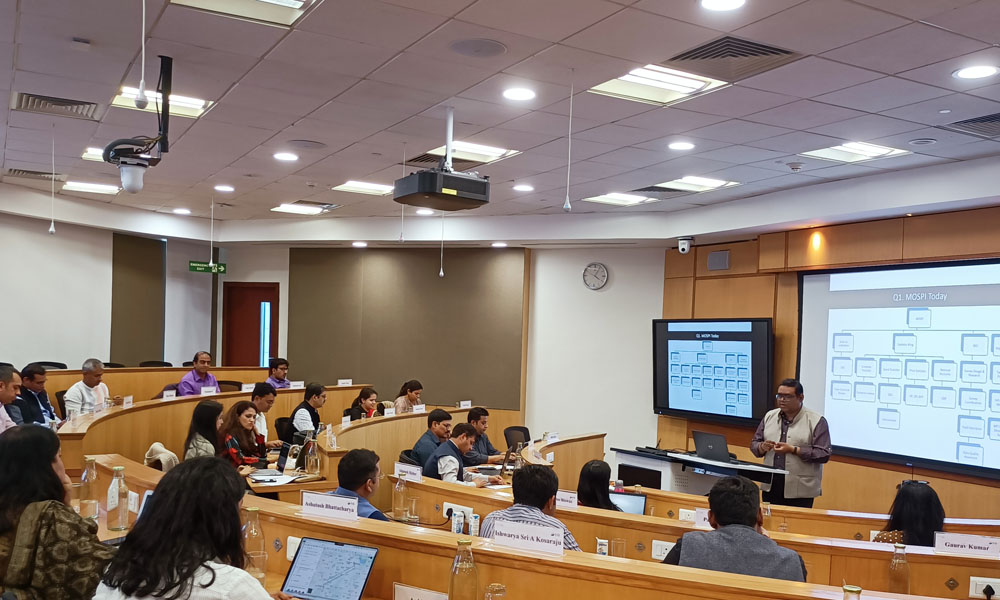
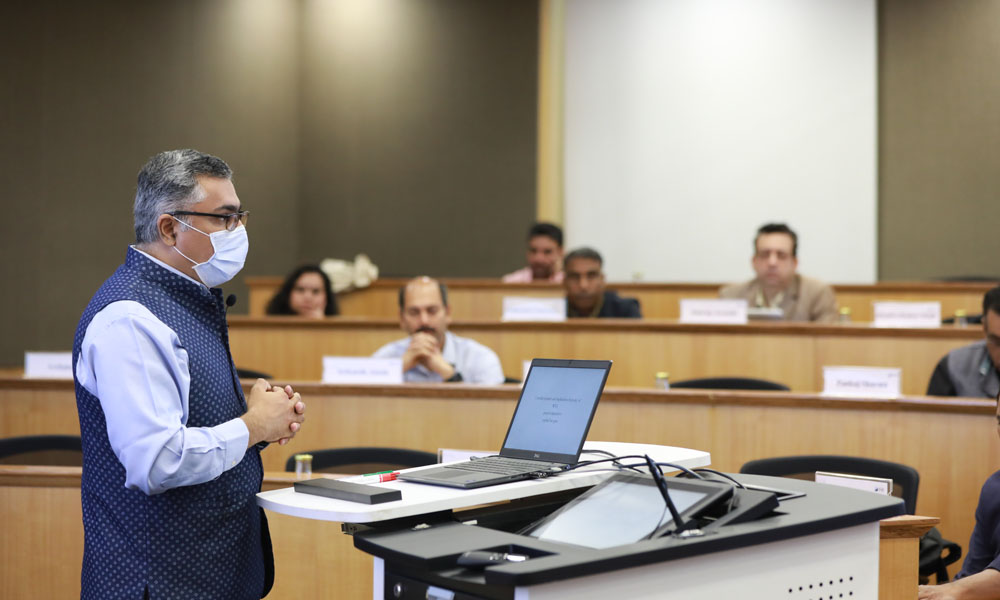
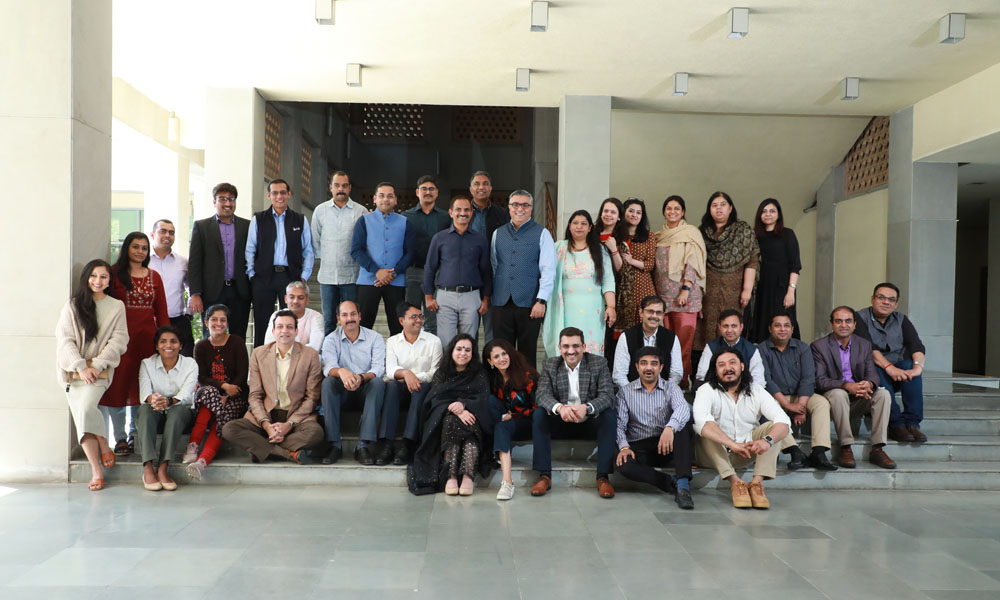
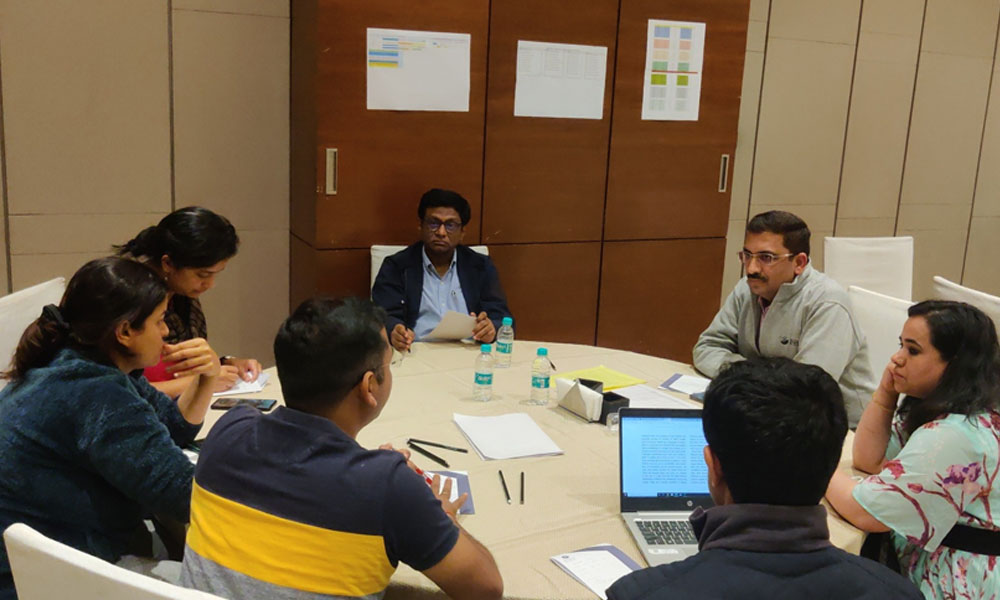
Visit to Census Gallery and Information Kiosk, Chandigarh
Participants visited the Census Gallery and Information Kiosk at the Directorate of Census Operations, Punjab and Chandigarh. The first-of-its-kind gallery in India highlights the processes and methodologies of census activity, maps and diverse census data; displays information about Census 2021 (the first digital census of India), and houses vintage census mapping instruments, rare books and stamps. The participants were taken through the gallery and also informed about digital resources relating to census data, along with a formal presentation by Dr Abhishek Jain, Director, Census Operations, Punjab, creator of the gallery and also a student of the AMPPP Cohort 22.
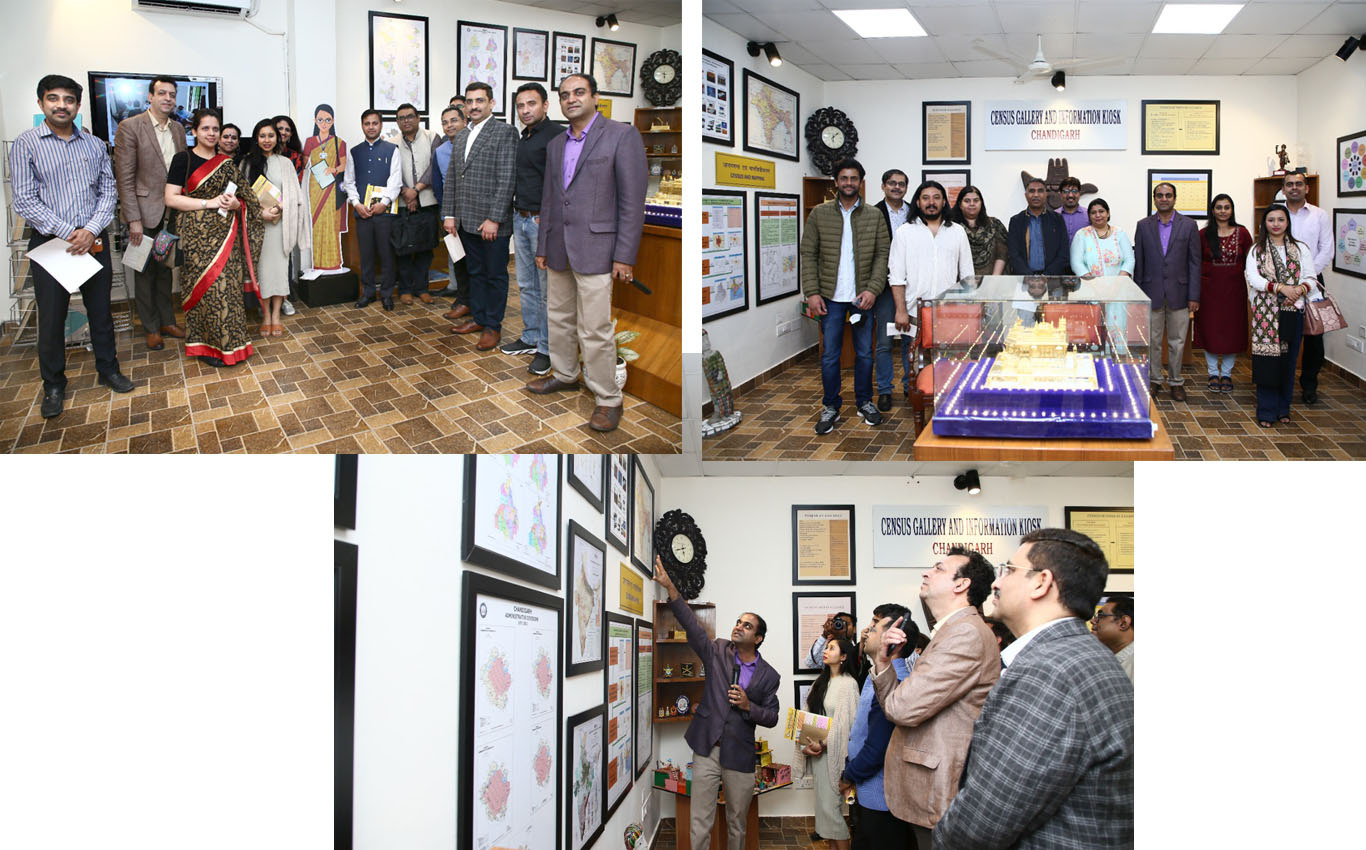
Residency Expert Talk

The expert session in progress during the residency, at Chandigarh
Mr Ravi Capoor, CEO, Sansad TV, and Former Secretary, Ministry of Textiles, delivered a guest lecture on issues and challenges faced by the country during its journey to become self-sufficient in the production of personal protective equipment (PPE) kits, in the unusual times of the pandemic. He explained how a rigorous and multi-fold collaboration between the small-scale industry throughout the country and various government departments, coordinated by the Ministry, helped manage the unprecedented crisis, and made the country fulfil the extraordinary demand for PPE kits. Documenting the operation, the Institute has also developed a case study on PPE distribution and manufacturing (details under ‘Case Study’ section).
POLICY WALK











The Policy Walk was conducted for the Cohort 22 of the Advanced Management Programme in Public Policy from 14th March to 17th March, at New Delhi. The three-day trail through high-profile corridors of the Capital hosted a multitude of interactions with practitioners, formulators, and influencers of public policy. The participants got an opportunity to interact with Shri M. Venkaiah Naidu, the Hon’ble Vice President of India, who shared important policy concerns with them, followed by modest interactions over tea at the Vice President House, New Delhi! In addition to a special panel discussion-cum-dinner session (see details in the following section), participants also had in-depth interactions with:
- Dr Praveen Gedam, IAS, Additional CEO, National Health Authority (NHA) and MD, National Digital Health Mission (NDHM);
- Mr Dammu Ravi, Secretary, Economic Relations, Ministry of External Affairs, India, who also hosted a special lunch for the cohort at MEA Headquarters;
- Ambassador Naor Gilon, Ambassador of Israel to India;
- Dr Bibek Debroy, Chairman, Economic Advisory Council to the Prime Minister of India;
- Mr V Srinivas, IAS, Secretary, Department of Administrative Reforms and Public Grievances, Ministry of Personnel Public Grievances and Pensions;
- General VK Singh, Minister of State for Road Transport and Highways and Civil Aviation, Government of India;
- Ambassador André Aranha Corrêa do Lago, Ambassador of Brazil to India, and
- IPS Atul Karwal, Director General, National Disaster Response Force (NDRF), and Director, Sardar Vallabhbhai Patel National Police Academy.
Read more on the Policy Walk here.
Graduation Ceremony
The in-person graduation ceremony for the Cohort 20 (Batch 4) and Cohort 21 (Batch 5) of the Advanced Management Programme in Public Policy was organised on 1st April at the Mohali campus. Mr Dushyant Chautala, Deputy Chief Minister, Government of Haryana, along with Mr Rakesh Bharti Mittal, Chairman, Mohali Campus Advisory Board and Professor Madan Pillutla, Dean, ISB, felicitated sixty graduates of AMPPP. The ceremony was followed by the ISB’s exclusive reunion mega event, Equinox 2022, organised by the Department of Alumni Engagement, which provided an opportunity for all ISB alumni and their families to engage and enjoy through various activities organised by the School over three days, which included panel discussions, live theatre performances, music concerts, DJ nights, children’s workshops, celebrity interactions and much more.
ALUMNI ENGAGEMENT
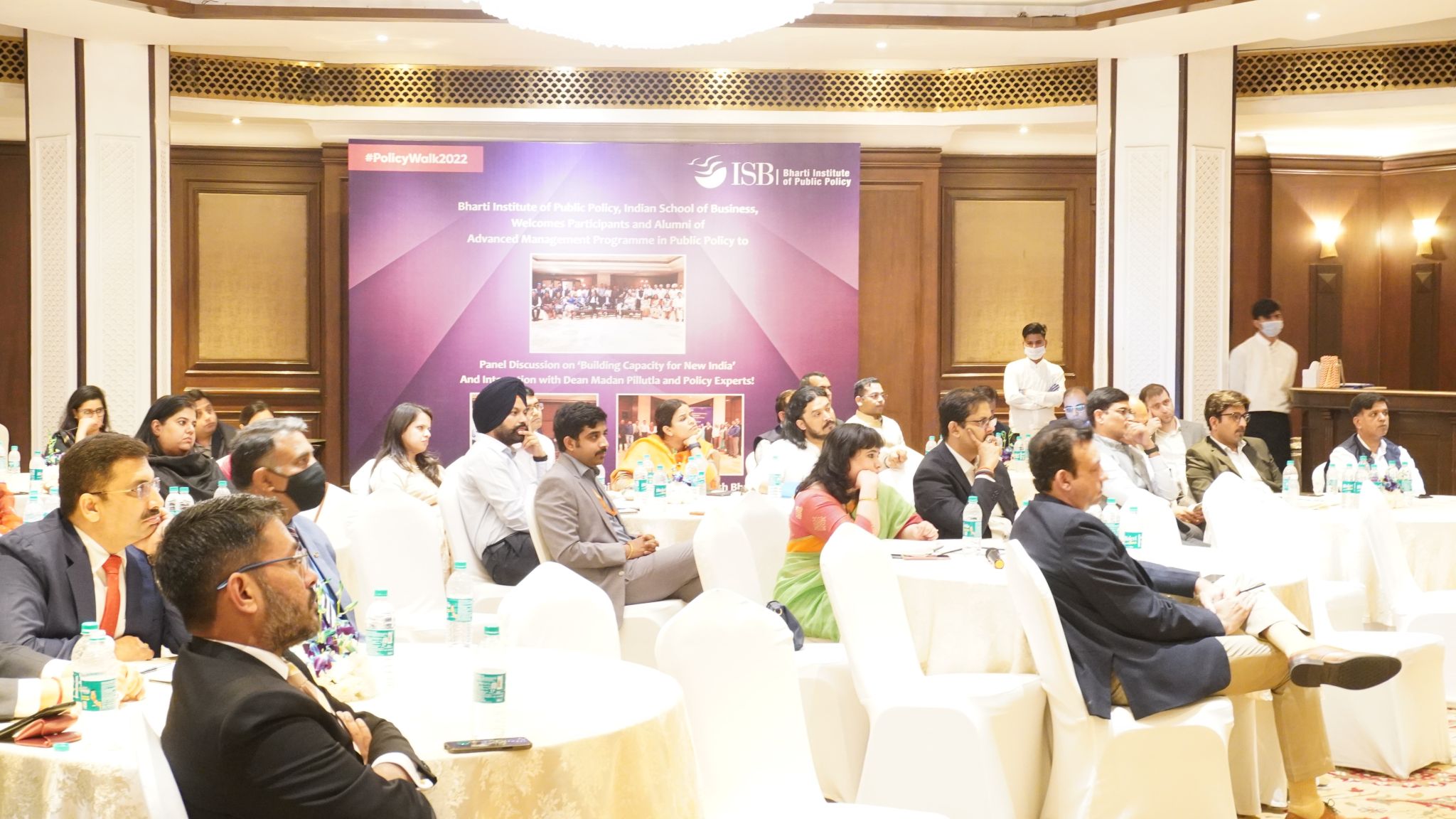
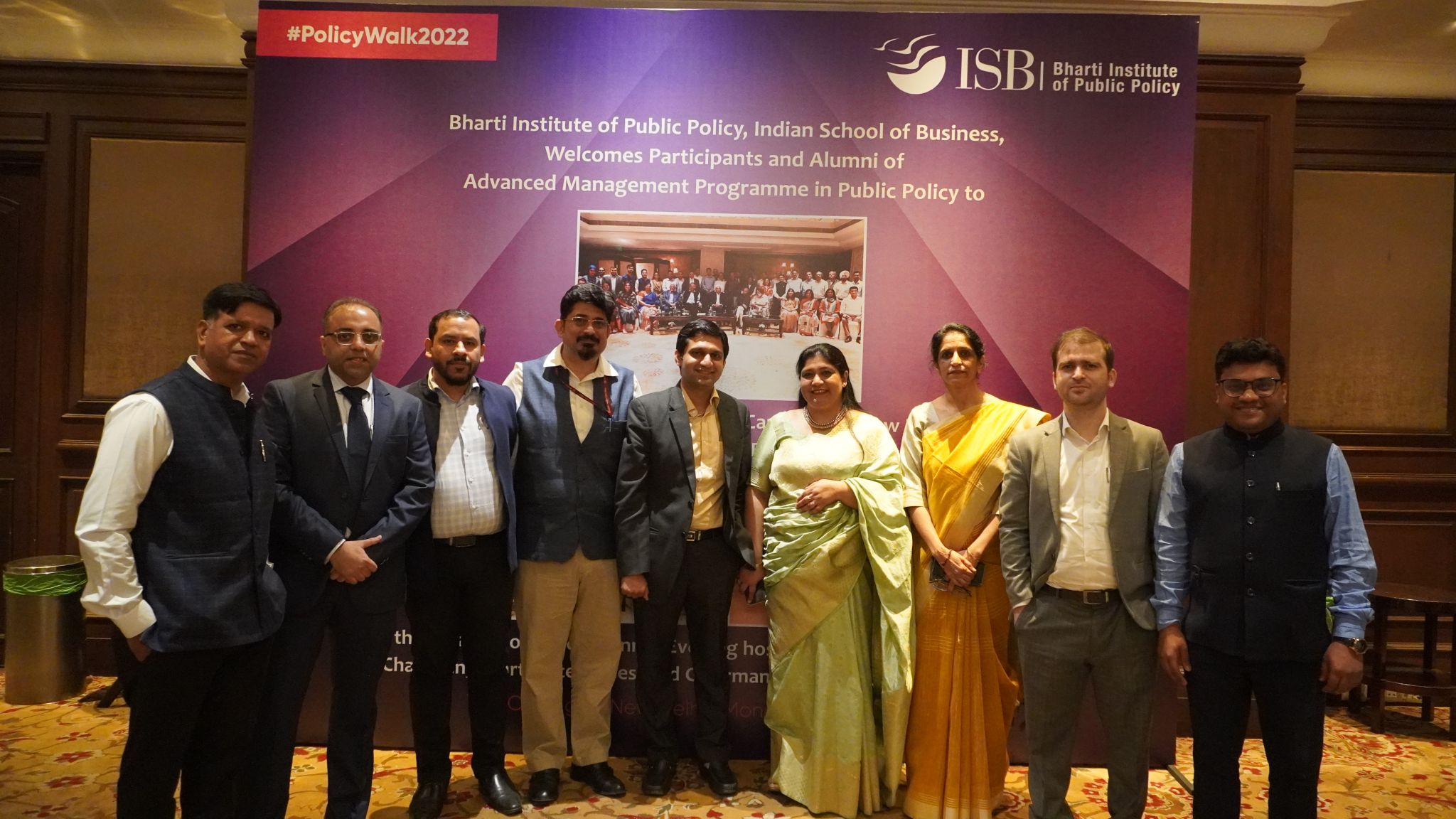
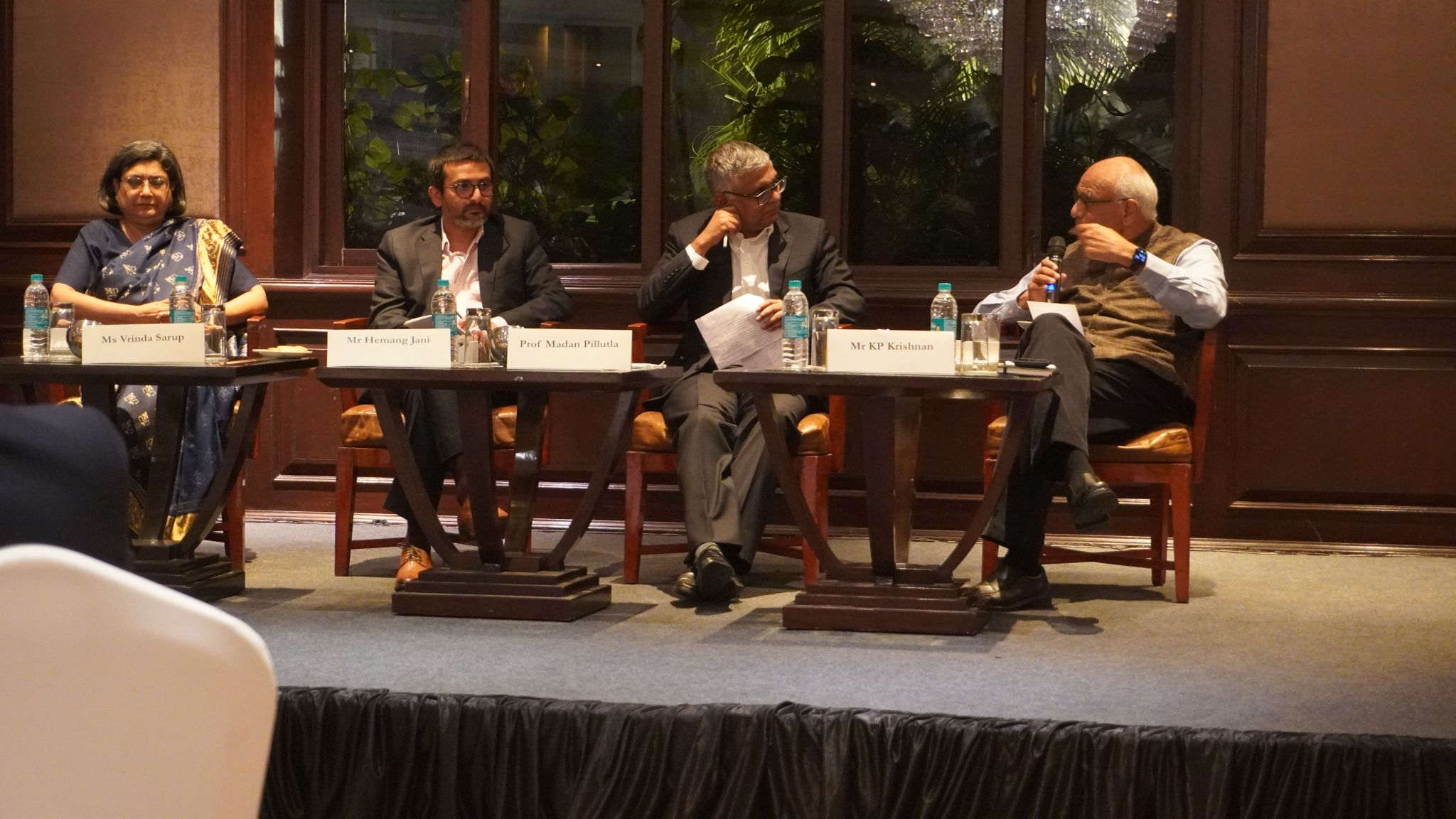
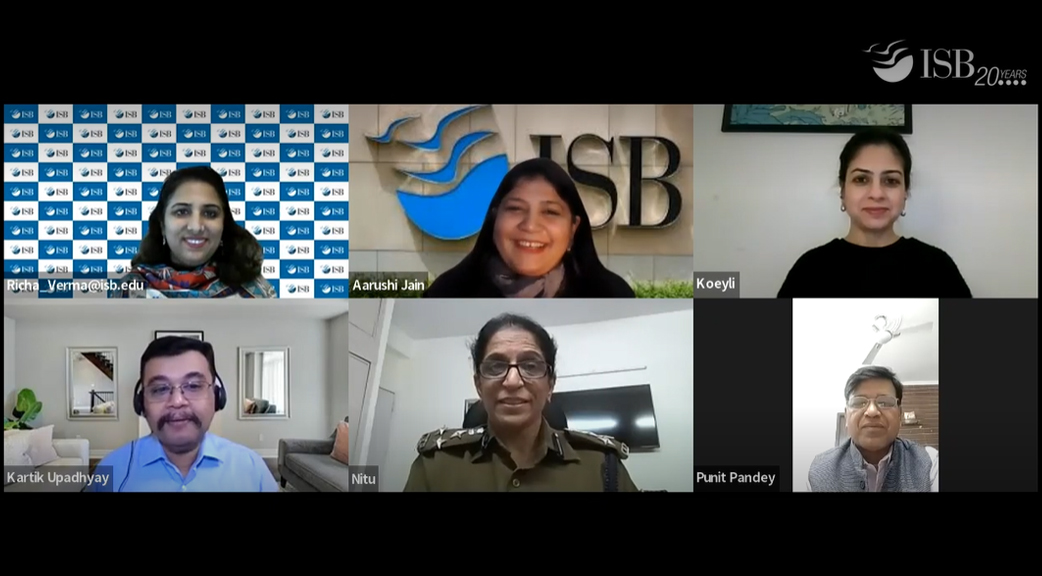
A special webinar was conducted in January 2022, where Dr Aarushi Jain held interesting conversations with some members of the vast alumni community to know about their journey with the Indian School of Business through the Advanced Management Programme in Public Policy. In an open live session, alums Nitu Bhattacharya, Deputy Inspector General, CRPF; Koeyli Jaluka, Head, Public Affairs, Corporate Communications and CSR, Roche India; Punit Pandey, Senior Consultant, Delhi Skill and Entrepreneurship University, and Kartik Upadhyay, Consultant, Public Affairs and Communications, shared their experiences and memories of the AMP in Public Policy at Bharti Institute, and how the course benefitted their career trajectories or policy practice.
The AMPPP alumni were also invited to the panel discussion organised during the Policy Walk of Cohort 2021-22. The session on 'Building Capacity for New India' entailed elaborated dialogue on defining the priority areas for capacity enhancement, training and development of individuals, institutions, and systems, as well as bridging the gaps through effective public-private collaborations. Panelists Prof Madan Pillutla, Dean, ISB; Mr Rakesh Bharti Mittal, Vice Chairman, Bharti Enterprises, and Chairman, Advisory Board, Mohali Campus; Ms Vrinda Sarup, IAS (Retd.), Former Secretary, Ministry of Human Resource Development; Mr KP Krishnan, IAS (Retd), Former Secretary, Ministry of Skill Development and Entrepreneurship, and Mr Hemang Jani, Secretary, Capacity Building Commission of India, shared holistic insights on the theme. The session was followed by a special dinner hosted by Mr Rakesh Bharti Mittal for the participants which gave way to lighter conversations between the cohort and the experts.
ALUMNI SPEAK
“A well-devised flexible design; comprehensive curriculum, and a diversified cohort makes AMPPP a great course, as it helps lay a good foundation of policymaking discipline in India.”
Chandra Mohan, IAS, Principal Secretary, Government of Tamil Nadu, (AMPPP 2019-20)
FACULTY SPEAK
“The course offers a balanced mix of in-person and offline engagements, and with pre-sessions, guest lectures, classroom activities and team projects, it prepares the students quite well in limited time.”
Prof Rajeev Malhotra, Visiting Faculty, Indian School of Business
STUDENT SPEAK
“For corporate professionals, AMPPP gives an interesting opportunity to pause, learn and articulate in a better manner about policy functions and their impact on various sectors.”
Rajiv Banerjee, Group Head - Corporate Communications at Piramal Enterprises Ltd (AMPPP 2021-22)
EVENTS IN FOCUS
The Institute organised two panel discussions during the Equinox 2022 in which the experts and alumni shared insights about the following topics of importance:

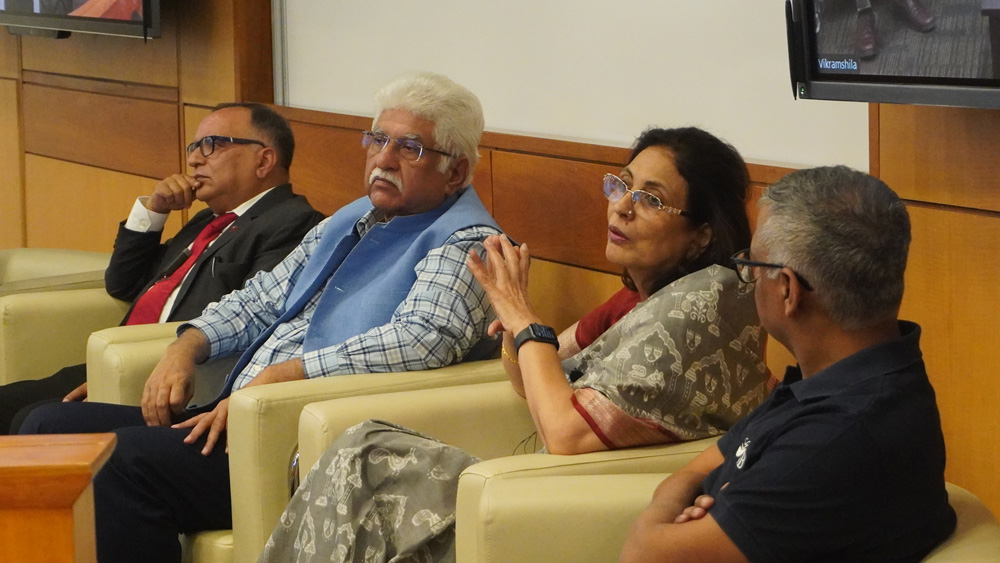
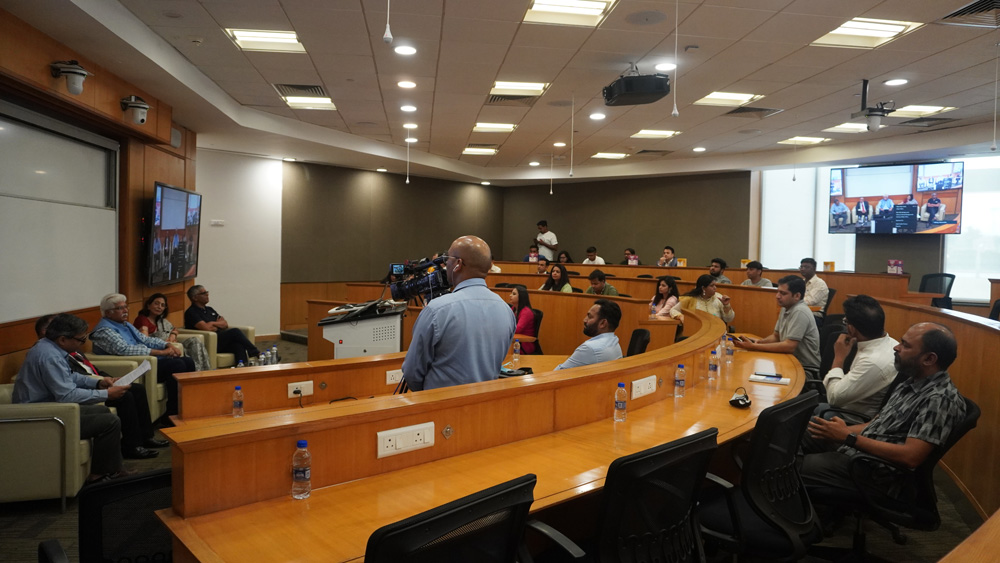

Industry-Academia Collaboration: Opportunities and Challenges
Mr Rakesh Bharti Mittal, Vice Chairman, Bharti Enterprises; ISB Dean Madan Pillutla; Ms Anita Kapur, Former Chairperson, Central Board of Direct Taxes; Prof Rajeev Ahuja, Director, Indian Institute of Technology, Ropar, and Prof Manish Gangwar, Executive Director, IIDS, ISB, (as moderator) discussed pragmatic facets of industry-academia collaboration to enhance the quality of research, education and practice. In a special session, the panelists talked about how a balance between autonomy and accountability for academic institutions, and the industry's support to basic research can help strengthen the collaborations which rest on understanding the challenges faced by the industry and the academia alike. The government's role in funding the research, importance of CSR and its impact, and the need for structural innovations to stimulate effective results were also deliberated upon.
Building Sustainable Forest-Based Economies
In a panel discussion conducted by Bharti Institute and Sustainability SIG, experts focussed on the need to regularise forest economies in India for uplifting lives, and enhancing sustainable forest management through technological interventions, grassroots entrepreneurship, curtailing shadow economies and building & strengthening industrial value chains. This, the experts emphasised, must start with changing the mindsets about forests and its people, inculcating a sense of nurturing and dignity. The intriguing panel discussion by Prof Ashwini Chhatre, Executive Director, Bharti Institute; Ms Lakshmi Venkatesan, Founding and Managing Trustee, Bharatiya Yuva Shakti Trust; Srini Pappula, Chief Scientist and Global Head, Digital Farming Initiatives Group, TCS, was moderated by Sankha Som, Sustainability SIG, Chief Innovation Evangelist, TCS, during the Equinox 2022.
COLLABORATION IN FOCUS
Census Data Research Workstation at Bharti Institute
The Directorate of Census Operations (DCO), Punjab, Ministry of Home Affairs collaborated with the Bharti Institute to set up a Census Data Research Workstation on the Institute’s premises at ISB, Mohali campus. The workstation will provide a consolidated platform for researchers, academicians, and data-enthusiasts to analyse (anonymised) record-level Census data at micro and macro level. Prof Ramabhadran Thirumalai, Deputy Dean, Academic Programmes, ISB, formalised the collaboration with Dr Abhishek Jain, IAS, Director, Census Operations, Punjab, on February 18.
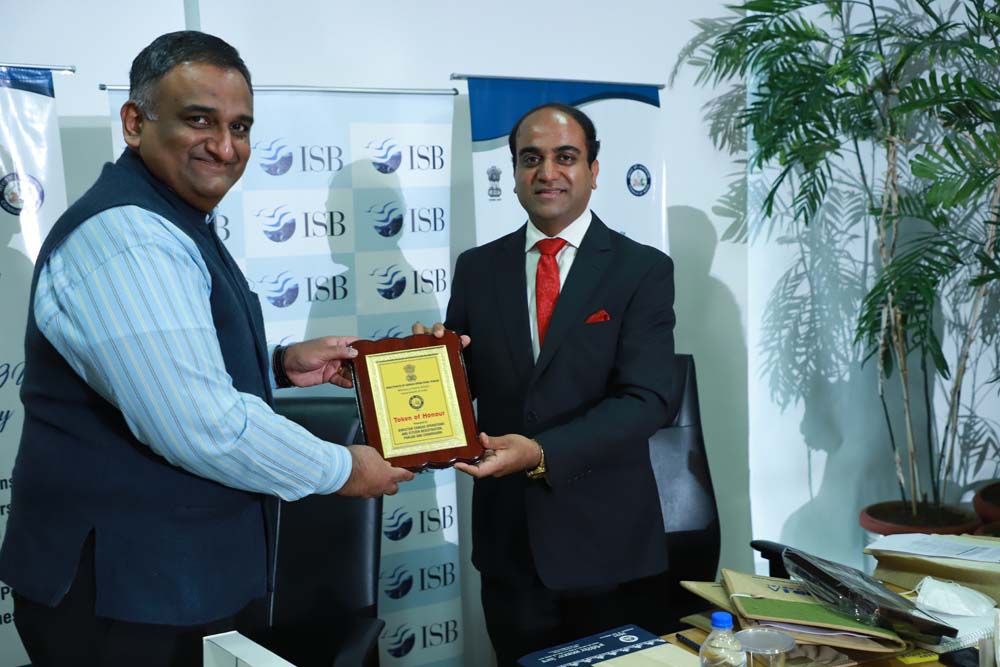
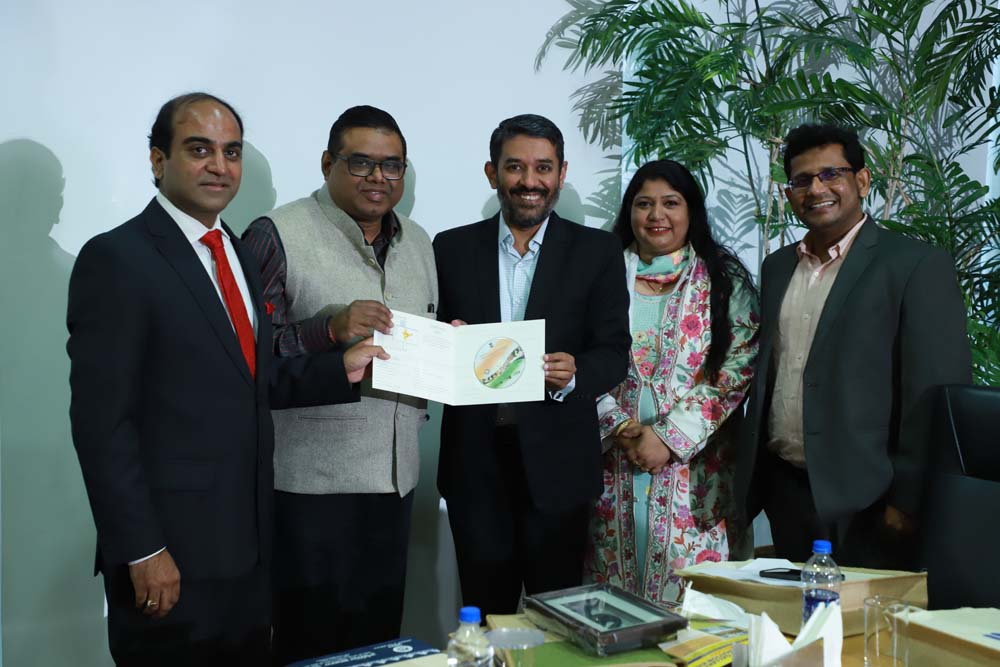

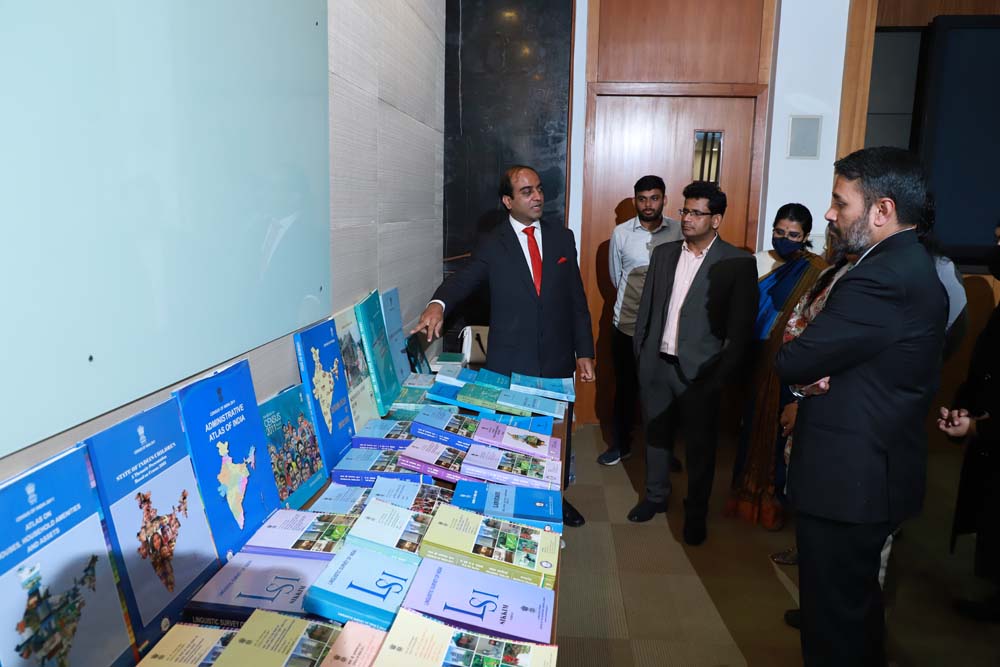
The pioneering project will allow greater and efficient utilisation of Census data by quality researchers from various disciplines to yield valuable insights on relevant socio-economic dimensions of the country. The study will potentially contribute towards improving the methodology of data collection during the Census activity, and in identifying strengths and weaknesses of the micro data.
The workstation will be fully equipped with relevant infrastructural and technical facilities, and specialised software for research on anonymised aggregate data at various administrative levels (country, state, district, sub-district, town and village) from Census 2001, Census 2011 and onwards, and will be setup and maintained by Bharti Institute. As part of the project, a steering committee has been appointed, and the findings and studies published using Census data from this workstation would be shared with the government.
ENGAGEMENT IN FOCUS
Opportunity Landscape of Climate Technology in India
The Environmental Defense Fund, USA, has collaborated with Bharti Institute, to explore the opportunity landscape for climate technology in India. As part of the synergy, the Institute will conduct a landscape review of the state of investments and adoption of climate technology in India. The research seeks to explore the current opportunities in climate tech, identify emerging sectors and financing trends, and document the experiences of businesses in the country which have leveraged opportunities from investments in climate-tech, particularly across hard-to-abate sectors, such as cement, agriculture, food, waste management, and mobility. The Institute will also help EDF analyse industry-academia linkages for co-creating scalable solutions for climate technology. The one-year project will assimilate and corroborate insights from four broad verticals, namely, climate finance, climate technology, climate policy, and nature-based solutions.
UPDATES ON ENGAGEMENTS
Government of Jharkhand
UPDATES ON GRANTS
Books in Progress
CASE STUDY IN FOCUS
Production and Distribution of PPE Kits in India during the Pandemic
In the initial months of 2020 when the pandemic gripped the world, catapulting the country into unprecedented times of health crisis and uncertainty, India found itself confronting with zero manufacturing capacity in terms of the Personal Protective Equipment (PPE). With disrupted supply chains, the Government of India had to kick start PPE manufacturing in the country, amid the national lockdown. The Ministry of Health approached the Ministry of Textiles (MoT) to fulfil the initial demand of 50,000 PPE, for which the MoT turned to fabric and apparel manufacturers in India for meeting the urgent requirement. The government and the industry together started to figure out what PPE manufacturing needed in terms of material, machinery and labour. All the while, the demand for PPE increased and reached over two crores.
The challenges of inadequate testing facilities and logistical issues owing to the lockdown were overcome through intra-department and inter-department coordination by the authorities. The noteworthy facilitation by the Ministry of Textiles and Indian entrepreneurs led to the demand for PPE being met by August 2020, just a few months into the pandemic.
The case of India's self-sufficiency of PPE is a blueprint for crisis management and collaboration between the government and the industry. The Ministry of Textiles approached the Institute for writing a report and developing case studies on the subject. Bharti Institute, thus, documented the case on ‘PPE kits Production and Distribution in India during the Pandemic’, which is now under the process of publication.

RESEARCH PUBLICATIONS
- As a lead author of the ‘Climate Change 2022: Impacts, Adaptation, and Vulnerability: Contribution of Working Group II to the Sixth Assessment Report of the Intergovernmental Panel on Climate Change’, released on February 28, 2022, Dr Anjal Prakash has contributed to the Technical Summary, Chapter on ‘Cities, Settlements and Key Infrastructure’; Cross-Chapter Paper 5 on ‘Mountains’ and Cross-Chapter box on ‘Gender’ in Chapter 18.
- Dr Anjal Prakash was a co-author in the paper titled ‘Survey of Gender Bias in the IPCC,’ which was published in the Nature journal in January 2022.
BHARTI INSTITUTE IN NEWS
TEAM IN NEWS
Prof Anjal Prakash writes on the key points of IPCC report and stresses on better adaptation policies for a sustainable future. The Indian Express. He also writes about climate crisis in the Himalayas, in The Third Pole.
In his co-authored article Prof Avik Sarkar says in the years to come, exports will play a crucial role in India’s economic growth. The Times of India.
Dr Sridhar Kundu, Senior Research Analyst, analyses major aspects of Punjab economy and the state's interim budget, in a write-up for The Punjab Times. He had also given significant opinion on Union Budget in Business Economics.
‘If we want women to be successful at workplaces, we must build a culture of diversity, inclusion and equity,’ says Dr Aarushi Jain, in her interview. The Plunge Daily
In a detailed write-up for The Shillong Times, Dr Sridhar Kundu analyses the policies and priorities laid out in Meghalaya State Budget. He had also expressed his views about the Meghalayan economy and expectations from budget.
Prof Ashwini Chhatre explains the IDP Nightlights report in a conversation with The Federal.
Dr Anjal Prakash shares the highlights of the IPCC report, explains the extreme weather events and emphasises the need for better mitigation efforts and policymaking, in various interviews, podcasts and dialogue with The Quint, UN News, Mirror Now, Gaon Connection, Hindustan Times, The New York Times, The Economic Times, The Guardian and The Hindu BusinessLine.
EVENTS IN NEWS
Bharti Institute starts five-day training workshop for legislative fellows:
The Shillong Times
Read MoreMeghalaya Media Provider
Read MoreSP News Agency
Read MoreIndia Education Diary
Read MoreSouth Asia Views
Read MoreVice President marks importance of evidence-based policymaking:
Business Standard
Read MoreANI
Read MoreThe Print
Read MoreLokmat Times
Read MoreThe Statesman
Read MoreBharti Institute renews its partnership on public policy with Fletcher School, Tufts University:
The Financial Express
Read MoreThe Hindu
Read MoreTelangana Today
Read MoreThe Hindu BusinessLine
Read MoreHans India
Read MoreRESEARCH STUDIES IN NEWS
ISB's- India Data Portal released a report on ‘Nightlights data of Uttar Pradesh’, showing growth in economic activity at the assembly constituency level.
India Today The Times of BengalEco activities significantly affected in Goa during pandemic.
The Times of India The Week Goan News WireTHOUGHT LEADERSHIP
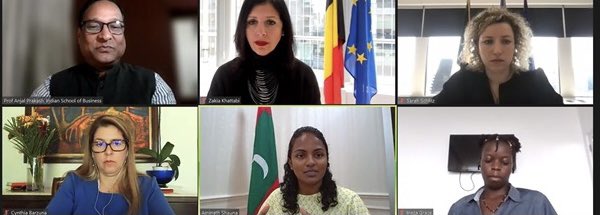
Anjal Prakash: In a podcast for Centre on US-China Relations, recorded in February, Prof Anjal Prakash talked about the impact of melting glaciers in the Himalayas on the lives and livelihoods of people. He also explained key points of analysis and action for India from the IPCC Sixth Assessment Report in an event was organised by UNEP; Shakti Sustainable Energy Foundation; WRI; Climate Trends; CEEW, and Bihar State Pollution Control Board. Prof Prakash also moderated a panel discussion on ‘Women’s representation and the Role of Civil Society’ at the 66th Commission on the Status of Women, in an event co-hosted by the Governments of Belgium, Maldives, and Costa Rica.
Avik Sarkar: In a panel discussion on ‘FTP priorities for the MSME sector in light of the Budget’, organised by Plunge Daily, stressed on the importance of common retail policy for offline and online sellers. He also shared his insights about how India can harness and optimise the benefits of data science and analytics, in a virtual event organised by Hero Vired.
Know more about the thought leadership activities of the faculty and team members here.

It is for the relentless dedication of our amazing team that Bharti Institute keeps on scaling new heights, and flourishing even when times get pandemically tough. We thank our researchers, associates, managers, writers, and coordinators for their contribution and noteworthy effort to Bharti Institute’s innovative programmes, change-oriented collaborations, and dynamic pursuits. Miles to go, together!
